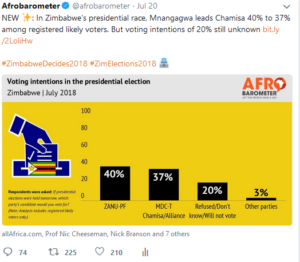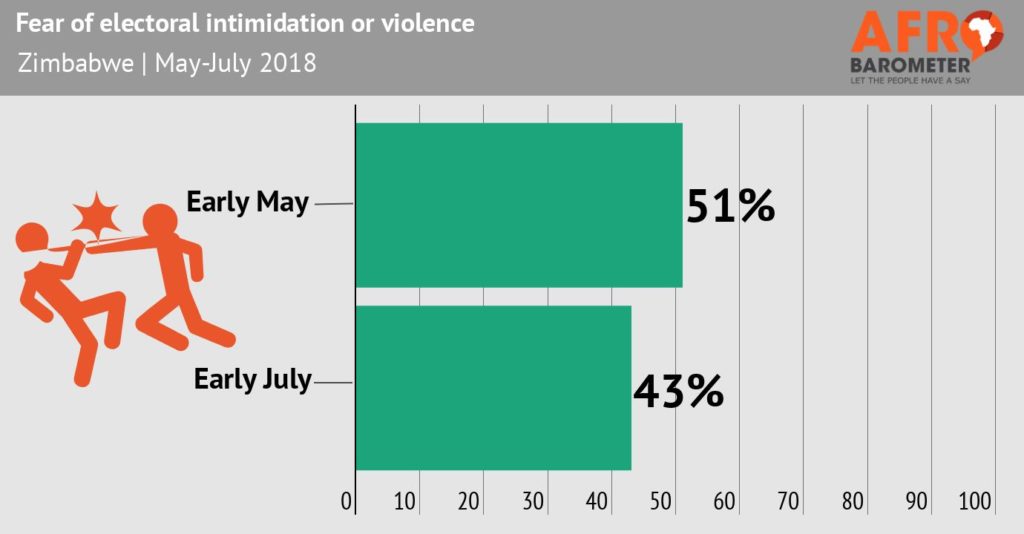The jury remains out as to whether Zimbabwe’s recent election had achieved the promised clean break with the past of the Mugabe era, says Freedom House’s Michael Abramowitz. Any hoped-for rush of foreign investment into that country seems rather a long way away, given the current unsettled circumstances, he adds.
 Zimbabweans are disillusioned by the post-poll crackdown, Reuters adds.
Zimbabweans are disillusioned by the post-poll crackdown, Reuters adds.
The opposition has expressed concern about possible fissures in the establishment, including the military. While addressing the ruling party’s parliamentary candidates in March, President Ernest Mnangagwa claimed that he was aware of an internal plot to impeach him after the elections, VOA adds.
“One theory is that there is a parallel authority headed by ambitious securocrats which have control of the security institutions,” said Alex Magaisa, a political analyst and law lecturer at Britain’s University of Kent. “That is the problem when power has been delivered to you by others. They own you. They see you as a placeholder, a puppet who has no need to be consulted.”

Dr Alex Magaisa
If Mnangagwa had to rely on the military to win the election he remains in its grasp, added Magaisa, a Reagan-Fascell fellow at the National Endowment for Democracy.
Before the poll, Zimbabweans were apprehensive about manipulation of the presidential election, Afrobarometer noted.
Mnangagwa is trying to distance himself from the heavy-handed military actions, insisting that he would launch an “independent investigation” into the violence and encourage the opposition to pursue its appeal through the courts, says Alexander H. Noyes, Senior Associate (Non-resident) with the CSIS Africa Program.
Moreover, he is highlighting endorsements from China, as well as Angola, Kenya, Tanzania, and South Africa to bolster his international credibility. Mnangagwa probably is calculating that the West’s disapproval will fade with time, and his election win eventually will gain acceptance by most African and international stakeholders, he writes.








